12 Incredible Uses for Vinegar
You know this household staple is a cheap, effective and natural all-purpose cleaner. But who knew that it could also smooth out your hair and spruce up wilted veggies?
By Lynn Andriani

Photo: Thinkstock
Condition Your Hair
Whether you ran out of your favorite brand or you just washed your hair au naturel with a DIY baking-soda blend, an apple-cider-vinegar-and-water rinse is a surprisingly efficient conditioner. Betsy Jabs, coauthor with her husband, Matt, of DIY Natural Household Cleaners, suggests mixing a tablespoon of vinegar with a cup of water in a clean spray bottle, shaking it up and squirting it all over your wet hair. Massage it in, let it sit for a minute or two and rinse. Your hair will be smooth and won't smell like vinegar (though you may crave a salad for lunch).
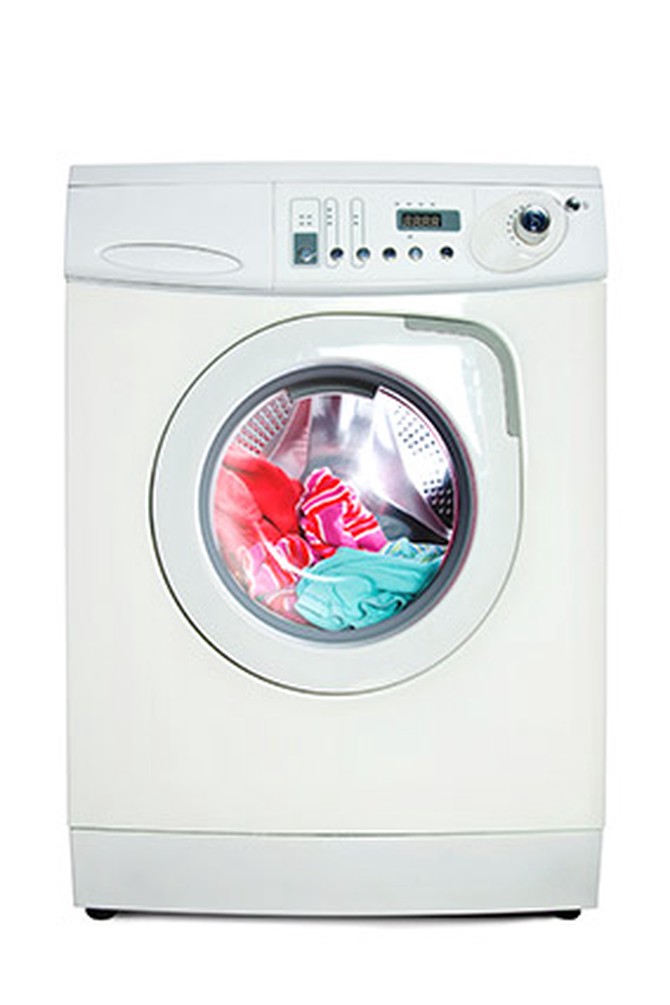
Photo: Thinkstock
Refresh Your Workout Clothes
Those moisture-wicking tank tops and sports bras may keep you dry during intense sweat sessions, but somehow they still smell awful after they've been washed. Donna Smallin, author of The One-Minute Cleaner Plain & Simple, says if you can't seem to get the stink out, load the clothes back into the washer and add a cup of white vinegar (or a half-cup if it's a front-loading HE machine, which uses less water). Run one cycle in the same temperature as you normally do, then repeat, swapping in a half-cup of baking soda (or a quarter-cup for an HE machine) for the vinegar. Dry as usual.

Photo: Thinkstock
Revive Limp Greens
White vinegar can work wonders on wilted lettuce—just soak the leaves in a bowl with cold water and a splash of white vinegar for 10 minutes. Then rinse the greens. If you're using the lettuce in salad, dry it using a salad spinner (since dressing won't stick to wet leaves) and dress it with a tastier variety of vinegar, such as balsamic or red wine.
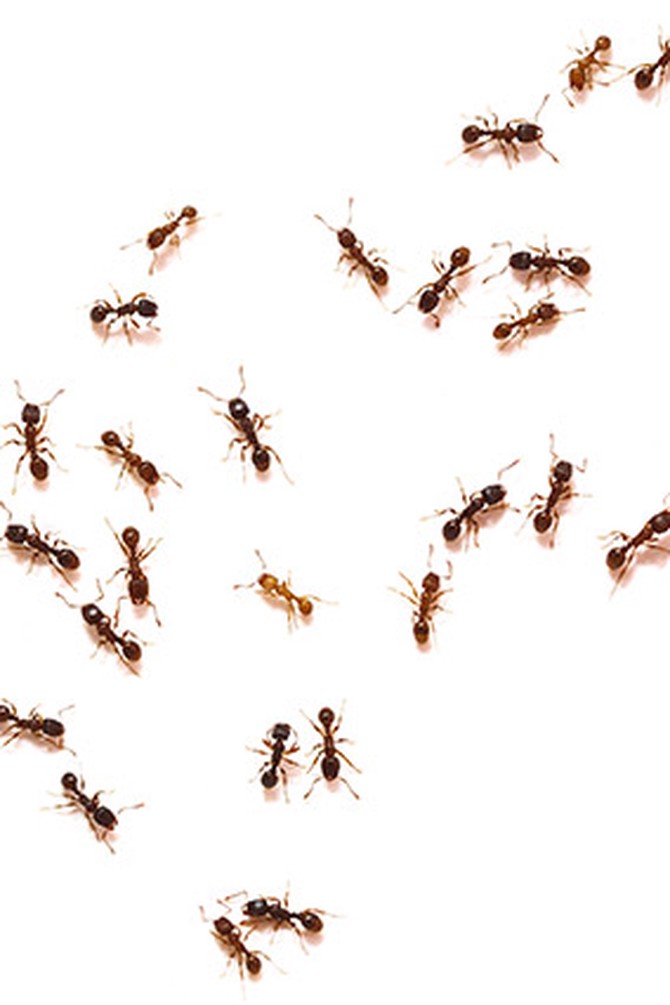
Photo: Thinkstock
Repel Ants
Spring and summer often bring ant invasions into homes, and while some of the natural deterrents we've heard about—especially flour and pepper—can be messy, a spritz of white vinegar is not and can work just as well. Spray it directly into cracks, around baseboards, on countertops or anywhere ants tend to crawl.
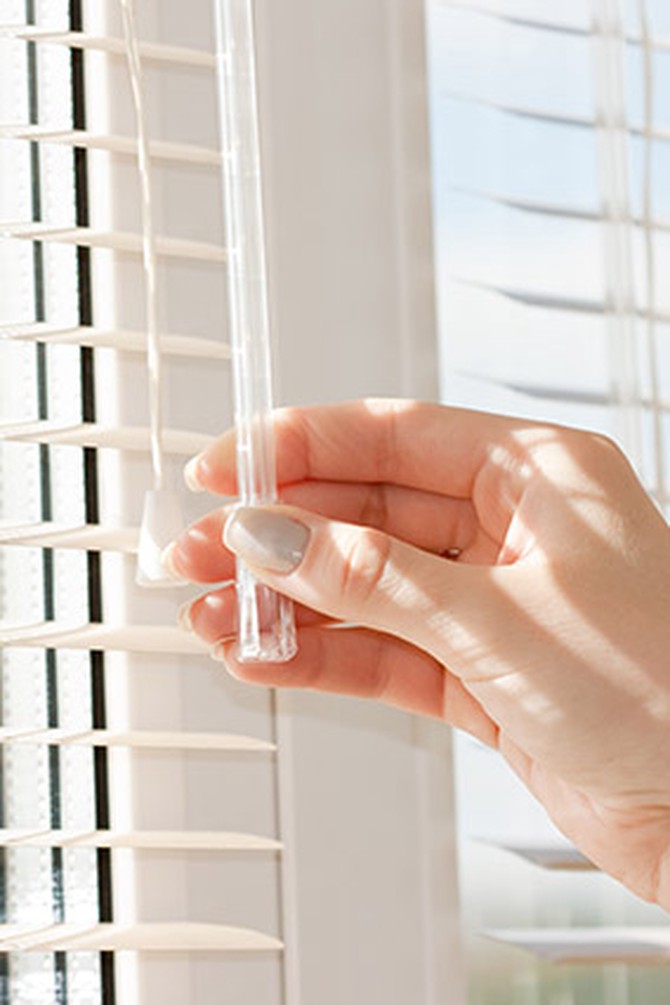
Photo: Thinkstock
Get the Grime Off Blinds
You can vacuum the dust off metal, plastic or wood blinds; but if the grime buildup just isn't coming off, try covering your hand with a (clean) old sock, dipping the tip in white vinegar and wiping the blinds—the gunk should soon disappear.
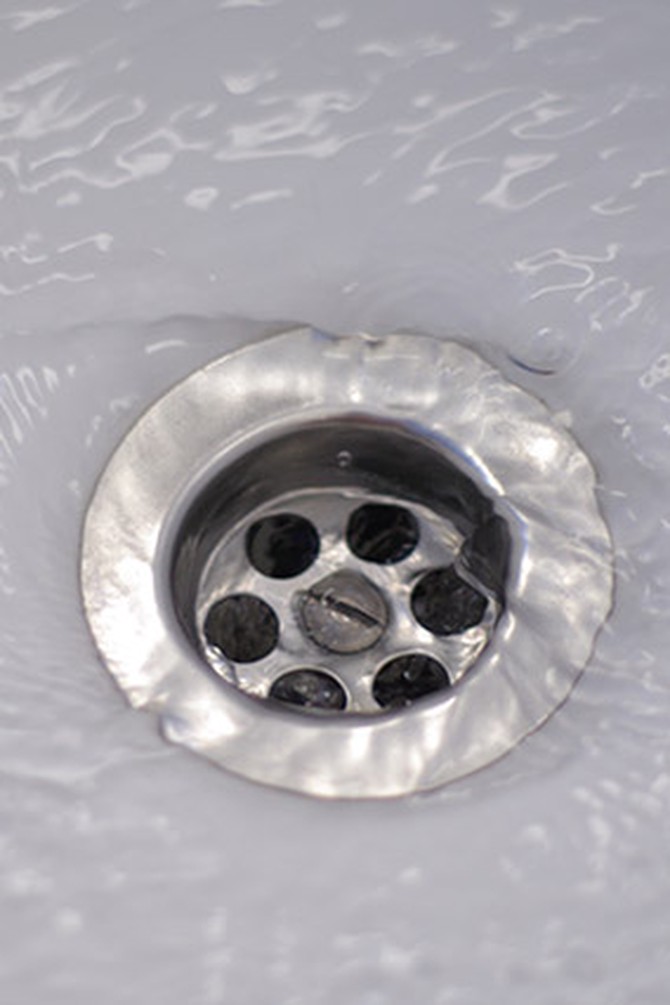
Photo: Thinkstock
Unclog Drains
Environmentalist Elizabeth Rogers has a cheap, nontoxic solution to clogged drains: She pours a cup of baking soda down the drain, chases it with a cup of white vinegar and lets the two work their magic for five minutes. The finale: She flushes the drain clear with eight cups of near-boiling water.
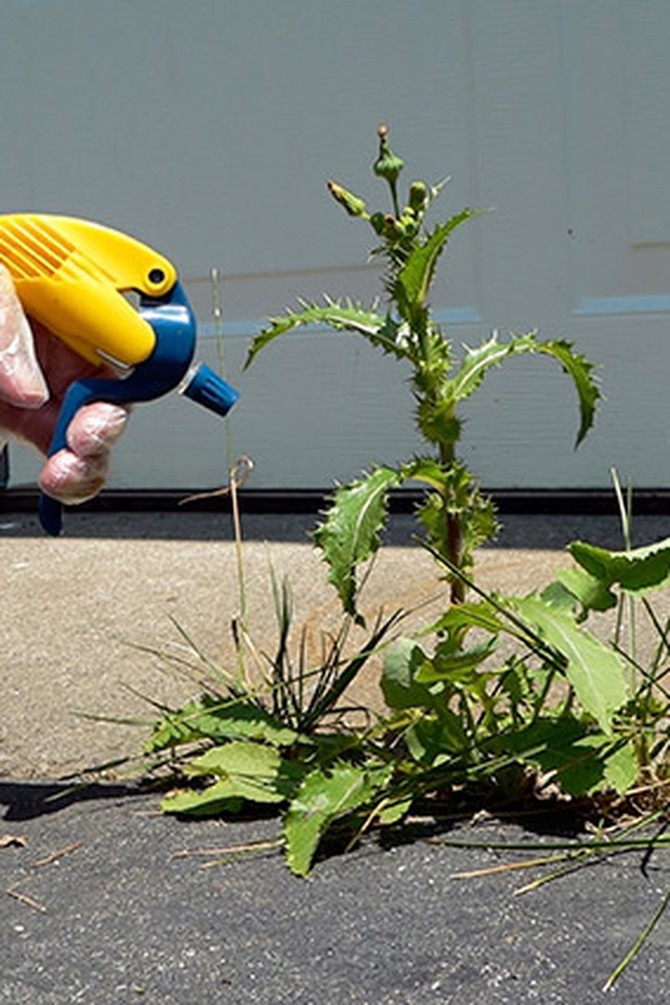
Photo: Thinkstock
Kill Weeds
Even if you aren't growing fruits, vegetables or herbs to eat, you probably don't want to spray pesticides in your garden. Try full-strength (i.e., non-diluted) vinegar on the weeds: its acidity will kill young, pesty plants (though if the weeds are large and threatening to take over, you may need to just yank them out by the roots).

Photo: Thinkstock
Get Rid of Odors
If you want to eliminate the fried-fish smell in your kitchen but not necessarily replace it with "pineapple breeze" (or some other scent that comes out of an aerosol can), try this trick from Smallin: Pour white vinegar in a small bowl and leave it on the kitchen counter overnight to absorb cooking odors.
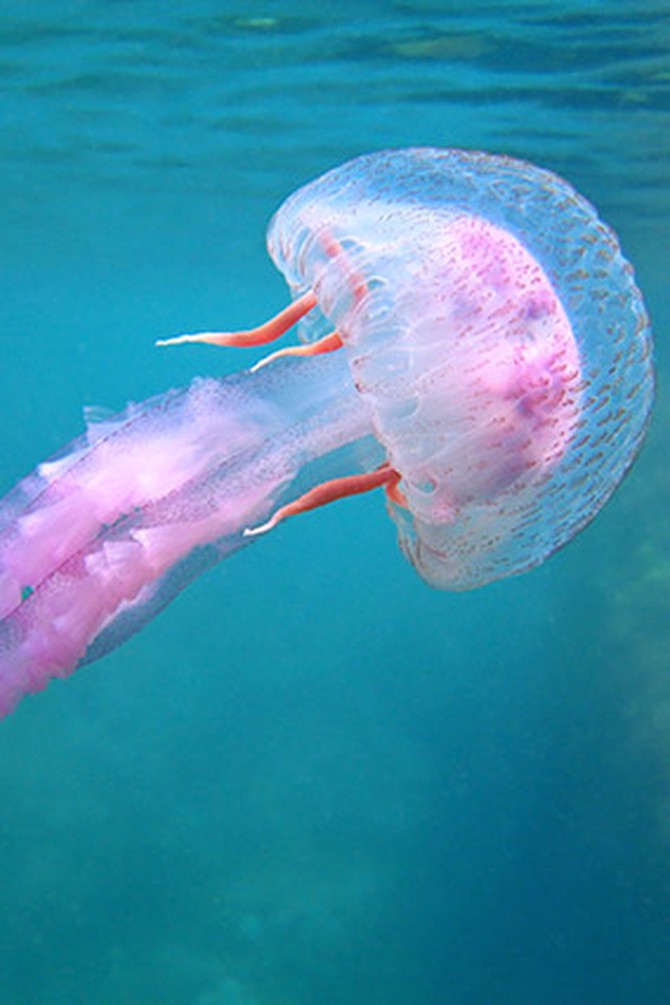
Photo: Thinkstock
Ease a Jellyfish's Sting
The vast majority of jellyfish stings aren't harmful—but even so, the pain can put a damper on your day at the beach. Dr. Oz has a fast-relief remedy: Fill a bucket with vinegar and soak the affected area for 15 to 30 minutes; the acetic acid in the vinegar stops the tiny darts that a jellyfish injects into your skin from releasing more venom. (However, Dr. Oz says that some people are allergic to jellyfish, so if you're experiencing hives or wheezing, seek emergency help ASAP.)
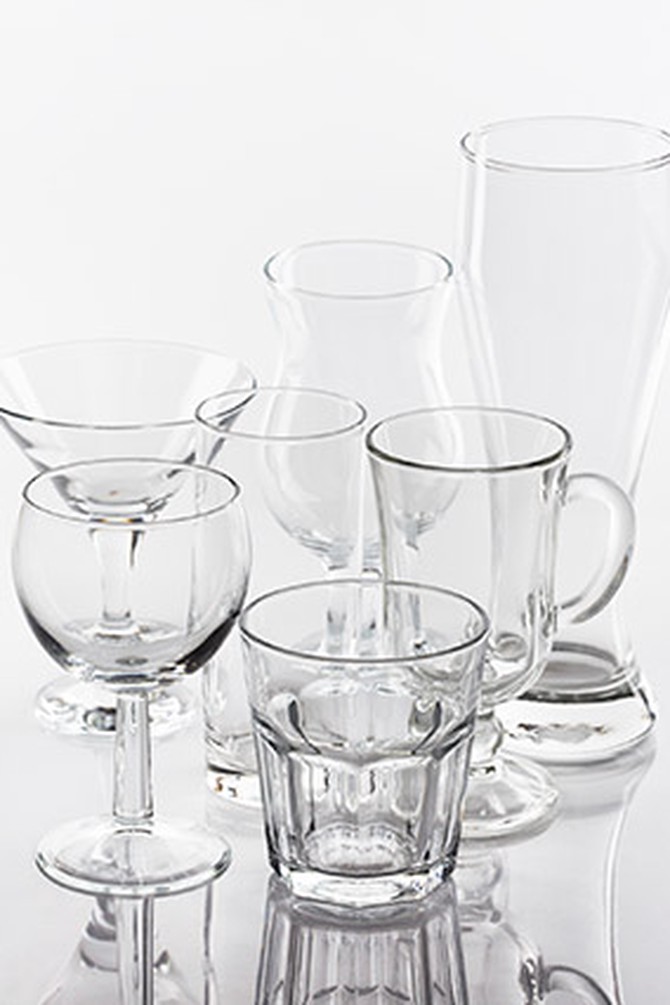
Photo: Thinkstock
Make Glasses Shine
Even if it's in a china cabinet, crystal can collect a thin film of dust. Smallin gets glasses sparkly clean again by soaking them in a solution that's one part vinegar, three parts warm water—plus a drop or two of dishwashing liquid. She rinses them with warm water and wipes them dry with a microfiber cloth.
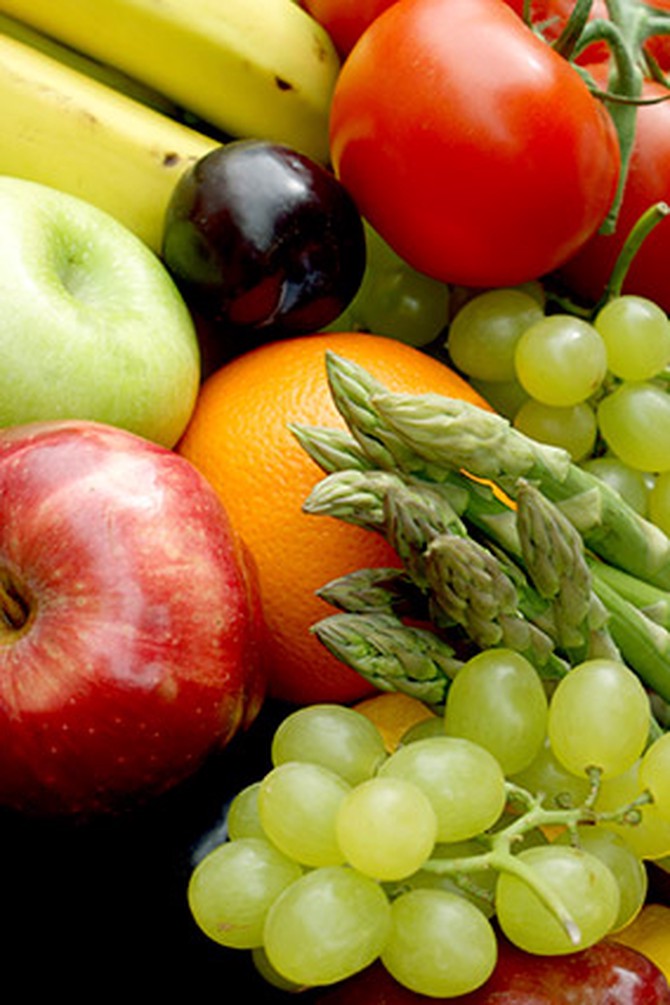
Photo: Thinkstock
Remove the Bacteria from Produce
When the editors of Cook's Illustrated set out to find the most effective way to wash fruits and vegetables, vinegar came out the clear winner, beating antibacterial soap, water and just a scrub brush in removing bacteria. Fill a spray bottle with three cups of water and a cup of white vinegar, and spritz each tomato, apple or any other smooth-skinned fruit or vegetable about six times. Rinse well before eating.
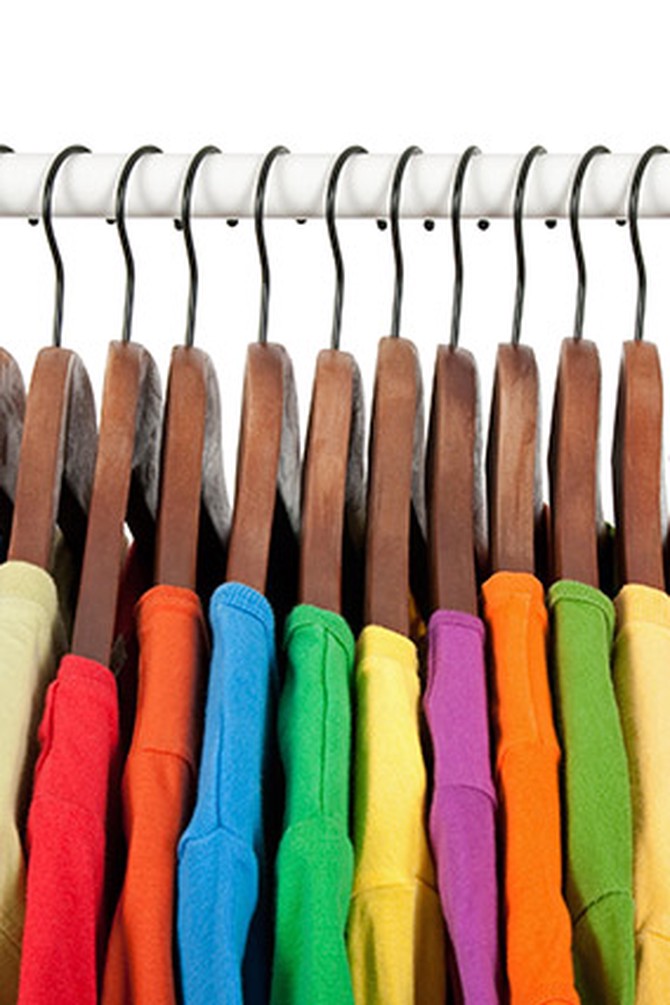
Photo: Thinkstock
Keep Bright Clothes from Bleeding
Sometimes, even if you separate lights and darks, a new piece of clothing can bleed onto a slightly faded pair of jeans, for instance, and leave color stains. Prevent this from happening by first soaking the unwashed garment in a 50/50 mix of water and white vinegar for 20 minutes. Then, wash the item with other colored clothes. (The vinegar step can help the new clothes resist fading over time, too—though it only works on 100 percent cotton clothing.)
Next: The cleaning mistakes everyone makes
Next: The cleaning mistakes everyone makes
Published 06/29/2013

